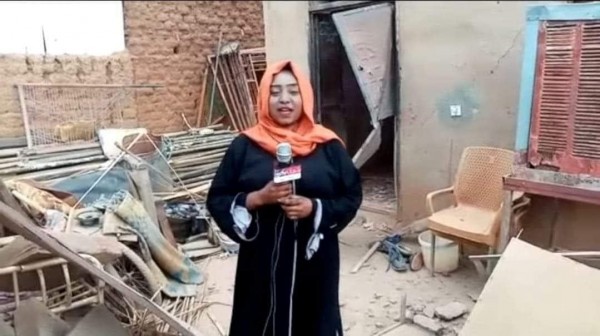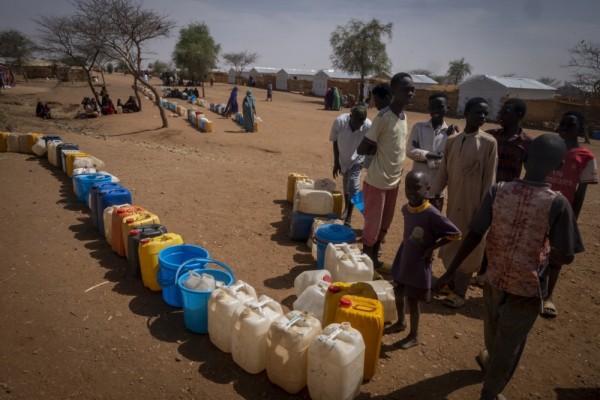The trial of Sudanese journalist Lubna Hussein, who faces 40 lashes after being arrested a month ago for wearing trousers, has been postponed, again, until 7 September, according to International Press Institute (IPI) fellow Vuslat Dogan Sabancı, who was in Khartoum for the hearing. Sabanci is a former board member of IPI and current CEO of Turkey’s Hurriyet newspaper.
The delay in Hussein’s trial is apparently designed to give the judges time to decide whether Hussein’s job as a UN media officer when she was arrested will grant her immunity from prosecution. Hussein has already resigned from that position so she can fight the case.
Hussein and 12 other women were arrested on 3 July in a restaurant by a group of public order police for wearing trousers. They were accused of “sensational dressing up” and threatening the values of Sudanese society under Article 152 of the 1991 Criminal Code.
Ten of the women opted to plead guilty, immediately received 10 lashes and were fined 250 Sudanese pounds.
Hussein, along with two others, opted to take legal counsel and fight the charges. Having adopted this route, the women could now face up to 40 lashes. Hussein’s mother came to the court on Tuesday to support her.
In a move lauded by the Arabic Network for Human Rights Information (ANHRI) and other human rights groups, Hussein mailed around 500 invitations to the media and rights groups, asking them to attend her trial and expected flogging.
IPI’s Vuslat Dogan Sabanci spent several hours on Tuesday, after the court hearing, with Hussein and female Sudanese journalist Amal Habbani, who edits the “Tiny Issues” column in Ajrass Al Horreya newspaper and who was charged a few weeks ago with defaming the police over a 12 July story entitled “Lubna…A Case of Subduing a Woman’s Body,” in which she defended Lubna Hussein.
According to a press release issued by the Arabic Network for Human Rights Information (ANHRI), Amal is being charged under Article 159 of the 1991 Criminal Code, which deals with defamation. If convicted, she could face a fine of 10 million Sudanese pounds or almost $3 million Euros.
Hussein told Vuslat Dogan Sabanci: “These kinds of occasions are not rare or extraordinary for Sudan. Women get arrested for improper clothing almost every day and get punished by whipping. However, it’s the first time a woman says: No I’m not guilty, I want to go to court.
“I’m fighting to change this law that limits women’s clothing and all women’s rights,” Hussein told IPI.
Asked by Vuslat Dogan Sabanci if she was afraid, she said: “I am not afraid of anything. I will fight for the change of the law.”
Lawyers in Khartoum told IPI that the domestic and international attention attracted by the trial had played a role in the judges’ decision to postpone it without allowing the defendants to speak.
Also speaking to Vuslat Dogan Sabanci, Amal Habbani said: “Since the last 20 years, women’s rights have been going backwards. In 1965 there were women in the Sudanese Parliament. However, today they are not allowed to decide what’s proper to wear.”
Sudan already has a poor record on press freedom. According to a 2008 UNHCR report, journalists have in recent years faced harassment, intimidation, attacks and direct censorship at the hands of both government and non-government forces. For example, in early 2007 the private Arabic-language daily Al-Sudani was closed down for several days for violating a ban on coverage of the murder of the former editor-in-chief of the private daily Al-Wifaq, who was beheaded in 2006. And in April 2007, BBC journalist Jonah Fisher was expelled from the country because of his coverage of the region.
The Sudanese parliament recently passed a new press law, which, although removing provisions that allow for journalists’ imprisonment, gives courts the right to impose unlimited fines. The amendments also give the National Press and Publication Council, which is closely linked to the President, the right to close newspapers for three days without a court ruling.
A Sudanese newspaper editor, who asked not to be named, told IPI’s Vuslat Dogan Sabanci in Khartoum: “Every day before we publish the paper, the Government comes and checks what we’ve written and we have to take things out. We are under extreme pressure.”
Speaking to the IPI Secretariat in Vienna, from Khartoum, Vuslat Dogan Sabanci said: “On the level of women’s rights and a free press, Sudan is really in an extreme situation. The International Press Institute and other international organisations, including women’s, can make a difference if they continue their interest in Sudan. It’s a unique place that should be under the eye of human rights campaigners.”
In a statement, IPI Deputy Director Michael Kudlak said: “The Sudanese government must ensure that journalists in Sudan are able to work free of hindrance, harassment, the fear of arrest or physical attack, and censorship. Sudan’s continuing failure to uphold the pillars of a free media place in question its ability to guarantee other fundamental human rights.”


